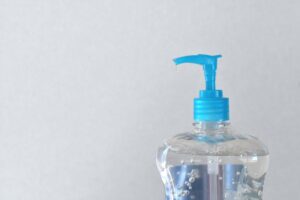In the growing world of natural skincare, deodorants, and sunscreens, zinc oxide and aluminum compounds are often discussed — but rarely understood in full.
At first glance, they might seem interchangeable: both are white powders used in personal care products. But their function, behavior in the body, and environmental footprint couldn’t be more different.
This comparison matters because aluminum has increasingly been linked to potential health risks and environmental damage, while zinc oxide has emerged as a more natural, skin-friendly alternative. If you’re trying to clean up your self-care routine, this is one swap worth understanding.
Why Compare Zinc Oxide and Aluminum?
While both ingredients are common in products applied to the skin, they serve very different purposes:
- Aluminum compounds (like aluminum chlorohydrate or aluminum zirconium) are used in antiperspirants. Their role is to block sweat glands, preventing moisture and odor from forming.
- Zinc oxide, on the other hand, is a soothing mineral used in natural deodorants, diaper creams, sunscreens, and more. It doesn’t block sweat; instead, it neutralizes odor and protects the skin.
This matters because the method of action — blocking sweat vs. supporting natural detox — has real implications for both health and environmental safety.
The Health Concerns Around Aluminum
Aluminum compounds are still widely used in most mainstream deodorants and antiperspirants — despite long-standing concern over how they interact with the body.
Known and Suspected Risks:
- Breast cancer concerns: Some studies have suggested a possible link between aluminum in deodorant and breast tissue changes, particularly because many breast cancers occur in the upper outer quadrant, near the armpit. While the research remains inconclusive, it’s enough to raise red flags for many consumers.
- Endocrine disruption: Aluminum may act as a metalloestrogen, mimicking estrogen in the body. Hormone disruption has been linked to a range of health issues, including reproductive challenges and hormone-sensitive cancers.
- Alzheimer’s disease: Aluminum accumulation in brain tissue has been observed in Alzheimer’s patients, leading some researchers to explore a potential connection. The results are not definitive, but again, enough to warrant precaution.
- Clogged pores and irritation: Aluminum salts physically plug sweat glands. This can lead to bumps, inflammation, or increased body odor if the skin’s microbiome is disrupted.
These concerns have led many people — especially those with sensitive skin, autoimmune conditions, or a clean-living philosophy — to seek alternatives.
Why Zinc Oxide Is Considered a Safer Option
Zinc oxide is a naturally occurring mineral that acts very differently than aluminum.
Rather than being absorbed into the skin or bloodstream, zinc oxide sits on the surface, forming a physical barrier that is non-invasive, non-comedogenic, and generally well-tolerated.
Benefits of Zinc Oxide:
- Non-comedogenic: Won’t clog pores or cause breakouts
- Antibacterial and soothing: Helps calm inflammation and reduce odor-causing bacteria
- UV protection: Provides natural, broad-spectrum protection against both UVA and UVB rays
- Allows sweating: Supports the body’s natural detox process instead of blocking it
For people seeking a deodorant that neutralizes odor but still allows the body to sweat as it should, zinc oxide is an excellent choice.
It’s also gentle enough for daily use, even on sensitive skin or freshly shaved underarms — and commonly used in baby diaper creams, eczema treatments, and post-procedure skincare.
Understanding the Skin’s Role in Detox
Our skin is a major organ of detoxification. Sweating helps the body eliminate waste, regulate temperature, and maintain microbial balance.
When sweat glands are repeatedly blocked:
- Toxins may accumulate
- Lymphatic drainage may be impaired
- Skin conditions like rashes or cysts may worsen
Choosing a deodorant that supports rather than suppresses the skin’s function isn’t just a preference — it’s a way to protect overall health and resilience.
Environmental Impact: Zinc vs. Aluminum
Beyond the body, these two ingredients have very different effects on the planet.
Aluminum:
- Mining and refining aluminum is highly energy-intensive and contributes to:
- Deforestation
- Water pollution
- High carbon emissions
- Aluminum is rarely biodegradable in product form and is often paired with aerosol sprays or plastic packaging
- Waste from antiperspirants often ends up in landfills or wastewater systems
Zinc Oxide:
- Naturally sourced from zinc ore and easier to refine with lower energy input
- Non-toxic in small concentrations and biodegradable in many formulations
- Can cause harm to aquatic life if used in nano-sized particles, but non-nano zinc oxide is widely accepted as reef-safe
If sustainability is a priority, switching to non-nano zinc oxide products in compostable or recyclable packaging is a meaningful step.
What to Look for in Natural Deodorant or Sunscreen
Making the switch? Look for these indicators on product labels:
For Deodorant:
- Aluminum-free
- Contains zinc oxide or magnesium hydroxide
- Fragrance-free or natural essential oils
- Packaged in paper tubes, glass jars, or recyclable aluminum
- Look for baking soda-free if you have sensitive skin
For Sunscreen:
- Non-nano zinc oxide as the active ingredient
- Broad-spectrum protection (UVA + UVB)
- Water-resistant and reef-safe certification
- No oxybenzone, octinoxate, or other chemical UV filters
Brands that are transparent about their sourcing and formulations are generally safer, both for you and the Earth.
How to Transition Away From Aluminum-Based Deodorants
Switching from conventional antiperspirant to a natural zinc-based deodorant is a big shift — but your body will adjust.
Tips for Transitioning:
- Expect a detox period: Your body may sweat more or smell different for a few days or weeks as it recalibrates
- Stay hydrated: This supports your lymphatic system
- Exfoliate regularly: Use a soft scrub or clay mask on underarms to remove buildup
- Try an armpit detox: A clay mask (like bentonite with apple cider vinegar) can help pull impurities from the skin
- Be patient: Many people find their odor levels decrease naturally over time as the skin microbiome balances out
Common Questions About Zinc Oxide and Aluminum
Is zinc oxide a good deodorant?
Yes — zinc oxide has antibacterial properties that fight odor without blocking sweat. It’s safe for daily use and suitable for sensitive skin.
Is aluminum dangerous in deodorants?
While not outright banned, aluminum has enough biological and environmental concerns that many people now choose to avoid it, especially with long-term use near lymph nodes and breast tissue.
Is zinc oxide reef-safe?
Non-nano zinc oxide is widely considered one of the safest sunscreen ingredients for coral reefs and marine life. Avoid chemical sunscreens that contain oxybenzone or octinoxate.
Can I use zinc oxide every day?
Yes — it’s gentle, effective, and protective. It’s even used on newborns, so daily use on adult skin is safe and often beneficial.
Final Thoughts: A Smarter Swap for Skin and Planet
Choosing zinc oxide over aluminum is more than a personal care preference — it’s a health-conscious and environmentally responsible choice.
While aluminum compounds stop sweat, they may interfere with natural processes and contribute to long-term health and ecological issues. Zinc oxide, by contrast, supports skin function, calms inflammation, and offers added protection — without blocking what your body is trying to do.
By making the switch, you’re not just protecting your underarms — you’re helping shift demand toward products that are gentler on your body, safer for the planet, and rooted in transparency.
Let your skin — and your conscience — breathe a little easier.









Reader Interactions